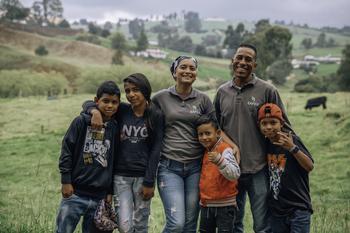Context
By August 2023, more than 7.7 million people had left Venezuela due to the economic and security situation. The majority are living in Latin America and the Caribbean. The main destination countries are Colombia, Peru and Ecuador.
The high number of displaced people, constantly changing migration flows, the economic conditions, and the situation in the host communities are significant challenges for the three countries. They are committed to providing refugees with education and health care services, handling their residence status, integrating them into the economy and protecting them from human trafficking, violence and exploitation. Many communities that take in displaced people are located in capital cities and border regions where conditions are difficult. Some of the population live under precarious circumstances.


